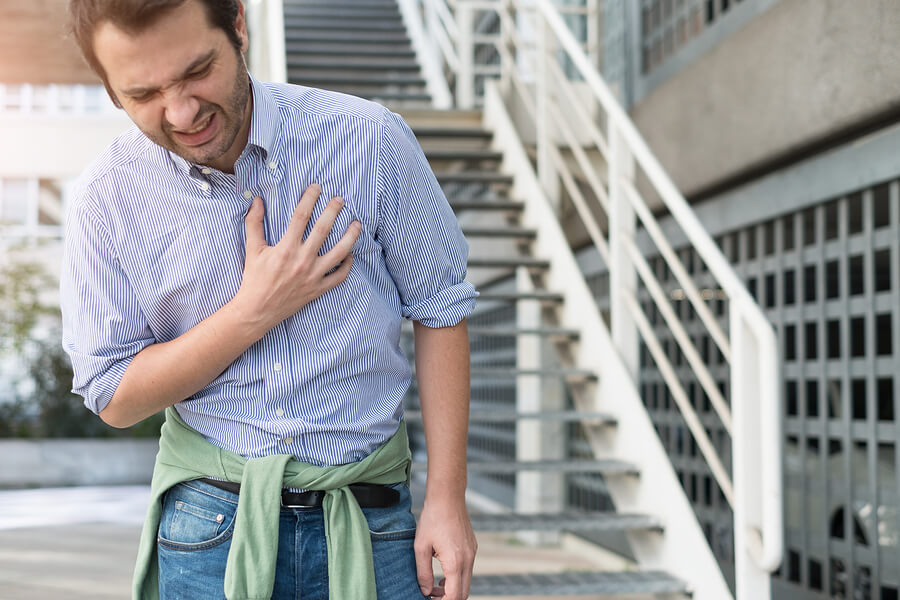That rush of euphoria melted all your pain and problems away right before your eyes. Unfortunately, that euphoria and rush come at a price. And your body and physical health oftentimes get stuck with the bill. And now that the coronavirus (COVID-19) is spreading throughout the country, it’s worth considering how opioids may be making you more susceptible to the virus.
COVID-19 is a respiratory virus that targets the lungs. Do opioids have a negative impact on your lungs and respiratory system? Can your opioid use put you at greater risk of getting sick? This blog post will give you the information you need to know to answer those questions.
It All Comes Down to Respiratory Depression
As the opioid epidemic in the country continues to surge on, overdoses have become more common. Did you know that one of the reasons why an opioid overdose can be deadly is because of respiratory depression?
What is Respiratory Depression?
Simply put, respiratory depression is when your body has a reduced urge to breathe. Think about the last time you weren’t hungry, even though you hadn’t eaten for a while. Whether it was stress or a cold, your brain was sending a signal to you saying you didn’t need to eat.
The same concept is true with respiratory depression. But the big difference is that having a reduced urge to breathe is life threatening. And the larger the dose of opioids you take, the higher your risk of experiencing respiratory depression.
But couldn’t you force yourself to take a breath? Well, that’s the tricky part with opioids. If you take a high dose of opioids, you’re likely to enter a sedated state. And when that sedation is combined with respiratory depression, opioid overdose deaths occur.
How Do Opioids Cause Respiratory Depression?
Your central nervous system (CNS) works closely together with the lungs. The CNS is in charge of not only controlling your heartbeat, but your breathing, as well. That means opioids slow down your CNS. And the more opioids you take at one time, the more delayed your CNS will be. That’s why one of the first signs of an opioid overdose is taking less than 12 breathes a minute – your body is being deprived of oxygen and your CNS can’t keep up.
Opioid Addiction and Your Immune System
The effect opioids can have on your lungs and respiratory system doesn’t stop there. Opioids can make your immune system less effective. This happens in two stages:
First, your immune system becomes less effective at preventing germs, bacteria and viruses from entering your body. Second, opioids slow your body’s natural production of cells used to fight off infections caused by germs and bacteria that do make it into your body.
These are some of the main reasons why people who are suffering from opioid addiction are more likely to get pneumonia. And in the wake of COVID-19, keeping your immune system strong is important.
Do Opioids Increase Your Risk of Contracting COVID-19?
Given the effect opioids have on your immune system, they do increase your risk of contracting COVID-19. But that’s not all. If someone who has COVID-19 were to abuse opioids, the result is very dangerous. Since the virus affects the lungs, respiratory depression caused by opioid abuse makes it much more difficult for your body to recover.
If you’re struggling with an opioid addiction, it’s natural to think that postponing rehab is a good decision because of social distancing. However, opioid addiction poses more of an immediate danger to your health, making you vulnerable to overdoses and viruses like COVID-19. By going to rehab, you’re giving your body and mind an opportunity to heal from substance abuse and you’re protecting yourself from COVID-19.
Get Opioid Addiction Treatment at Silver Maple Recovery
Silver Maple Recovery offers premier opioid addiction treatment in Cleveland. We offer an evidence-based approach to treatment that takes your personal challenges into account. It’s all led by our expert clinical staff members, who have an average of 24 years of local experience.
During these uncertain times, it’s normal to feel isolated and alone. But the journey towards lasting recovery doesn’t have to be made on your own. When you contact us, there are trained caregivers ready to talk to you 24/7. We’ll listen to your story and talk you through how our treatments programs can help.







